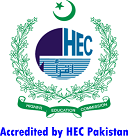THE INCREASING INFLUENCE OF THE NON-STATE ACTORS IN INTERNATIONAL POLITICS
Keywords:
Non-state actors, economic liberalism, chessboard, transitional contexts, legitimacyAbstract
The Non-state actors (NSAs) are concurrently considered as heroes and baddies in international politics. The prominence of the NSAs during the post-Cold War epoch has challenged the assumptions that international politics is state centred. The emergence of economic liberalism convinced many states to outsource their obligations mainly related to the delivery of social services and the security to the NSAs. Similarly, the establishment of international institutions, globalisation and emerging complexities in national, regional and international governance are some of the factors that contributed significantly towards enhancing the value of the NSAs on the chessboard of world politics. The NSAs further contributed to the development of new theories in international politics. In fragile and transitional contexts, the NSAs sometimes receive more eminence than states. In normal contexts, states still have influence over the political matters as compared to the NSAs. Some of the NSAs such as multinational and international corporations have obtained more power and resources than many states in the developing world. Critically, the NSAs are still unable to answer the questions about their authority, legitimacy and representation in international politics.














